Famous Monasteries in Lhasa
April 3rd, 2010 | Published in Destinations
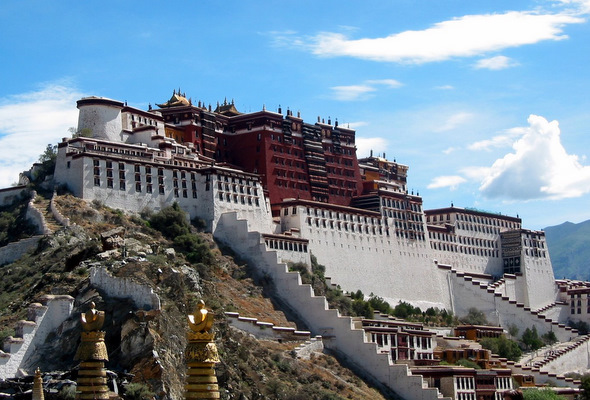
Visiting monasteries is one of the highlights of any Tibet trip. Tibetans have long invested large sums of money in monasteries, and it shows in the size of monastery compounds and the intricacy of temple details. At monasteries, you can get a good look at traditional architecture, valuable artifacts, golden Buddha statues, handpainted murals, and Tibetan religious culture. For your convenience, we’ve listed the major monasteries that should be on any Lhasa itinerary. Join pilgrims from all corners of Tibet in lighting butter candles, burning incense, and offering khata scarves to blessed statues.
_____________________________________________________________________________________
Sitting atop marpo ri, or red hill, the Potala Palace lords over the city of Lhasa. The Potala is 13 stories high and holds countless treasures in its many rooms. Built in 637 AD, the Potala has been home to the Dalai Lama lineage for more than a thousand years. Now a UNESCO World Heritage site, the Palace is a well-preserved museum that hosts millions of tourists every year.
_____________________________________________________________________________________
The Jokhang Temple is the holiest temple in all of Tibet. Pilgrims from all over flock to this temple to catch a glimpse of the Jowo Buddha, a statue that is said to have been blessed by the Buddha himself. Some pilgrims even prostrate all the way to the temple, even if it takes them years to travel from their home village to Lhasa. Others travel to the temple daily and prostrate in front of it, or circumambulate it while saying prayers.
_____________________________________________________________________________________
Drepung, which lies at the base of a mountain just outside the city of Lhasa, was once home to 10,000 monks. The enormous monastic complex is the site of many prayer halls, dormitories, and temples. Many Tibetans travel to Drepung for pilgrimage. Just below the monastery is the Nechung temple, the former home of the state oracle.
_____________________________________________________________________________________
Sera Monastery lies on the outskirts of Lhasa. The monks at Sera are renowned for their debating skills, and every afternoon you can catch them in the courtyard stamping their feet and clapping their hands as they challenge fellow monks in philosophical debates. The monks test each other on knowledge of Buddhist texts and ask each other questions like, “Are you a person?” The respondent’s answers must stand up to the rigors of logic.
_____________________________________________________________________________________
Ganden is located outside Lhasa on a tall, grassy mountain. While much of Ganden was previously destroyed, much of it has now been rebuilt. Ganden has great hiking. For those interested in a short hike, walk the short circumambulation route around the monastery. On the backside of the mountain on which Ganden is located are fantastic views of the valley far below. As Ganden is a sky burial site, vultures and crows can sometimes be seen circling overhead.
_____________________________________________________________________________________
Ramoche is considered to be the sister temple to the Jokhang Temple. Tradition has it that Ramoche was originally built to hold the Jowo Rinpoche statue, the holiest Buddha statue in Tibet. However, because of a threat of invasion, the statue was instead hid in the Jokhang Temple, and has remained there to this day. Now home to Jowo Mikyo Dorje, a bronze Buddha statue brought to Lhasa by the Nepalese queen, the Ramoche is a popular site for pilgrims.
_____________________________________________________________________________________
Translated as “Jewel Park” in Tibetan, the Norbulingka is the traditional summer residence of the Dalai Lama lineage. Built in the 1740s, the park includes gardens, fountains, and pools. A great picnic spot and theater venue, Tibetan families gather here in the summer to watch the Shoton Yogurt Festival operas and dramas. There is also a small zoo in the park.
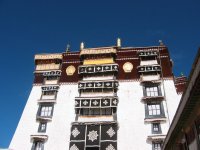
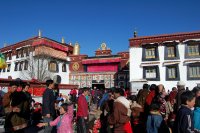
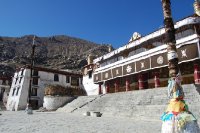
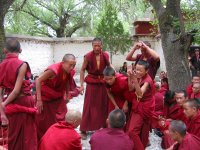
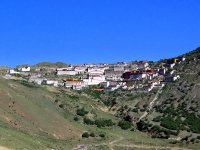
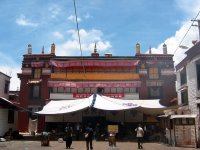
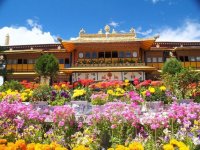
No comments:
Post a Comment